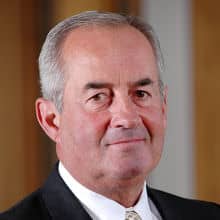Editor’s Note: The University of North Carolina Academic and University Programs Division releases its annual report this week. Great Teachers and School Leaders Matter surveys the work of the Division and UNC’s fifteen educator preparation programs that are focused on the University’s goal of preparing more, higher quality teachers and school leaders for North Carolina’s public schools. EdNC will be highlighting the report’s profiles of teachers, school leaders, programs, and partnerships from across the state as part of a nine-part series. The full report is available here.
In 2009, the University of North Carolina at Greensboro School of Education, University of North Carolina at Greensboro College of Arts and Sciences, and Huntsville Elementary School in the Rockingham County Schools were awarded an NC QUEST grant entitled, Core Math III: Supporting Teachers in Using Learning Trajectories to Implement the Common Core State Standards for Mathematics.
The project was the third in a series of collaborations between these partners funded by NC QUEST and focused on improving the instructional practices and student outcomes of thirteen teachers and administrators. The project leveraged lessons learned from previous work to implement a revised ninety-one hour professional development curriculum that built upon a deep understanding of the learning trajectories that underlie the Common Core State Standards for Mathematics to support teachers in implementing pedagogies that engage students in mathematical practice.
Video: What is the value of the Integrated Math under the Common Core State Standards?
A review of Core Math III confirms that when sound principles of change management and capacity-building work in concert, good things happen for educators and the students they serve.
It is clear that at Huntsville Elementary School in the Rockingham County Schools a culture change occurred as a result of partnerships and sustained, content-based professional development. This culture shift has been critical to the long-term sustainability of the effort. Seven years after the initiation of Core Math III, the staff and leadership of the school remain true to their original project goals in spite of multiple common circumstances that could have derailed their progress – teacher and school leader turnover, changes in state policy, scheduling demands, and other complications. Most importantly, 51.6 percent of Huntsville Elementary students scored at or above grade level on the 2015 End-of-Grade math assessment, 12 percentage points higher than the district average and 7.5 percentage points higher than the state average.
Video: How has the NC QUEST Grant been good for students?
As Huntsville Elementary School’s instructional coach, Mary Kirkpatrick, explains, “Involving … our staff … in sustained professional development focused on understanding learning trajectories and student-centered teaching and learning for mathematics has truly transformed our school AND our mathematics classrooms. Previous efforts in math professional development only touched the surface, but the Core Math III opportunity immersed our staff in continual professional learning, analysis, and reflection across a full two years.”
Video: Why was the professional development under the NC QUEST Grant better?
Because of their deepened mathematical content knowledge, teachers were confident and open to partnership discussions related to instructional practices and student performance. They drew from expertise within their staff, from the University of North Carolina at Greensboro School of Education and from the University of North Carolina at Greensboro College of Arts and Sciences. These discussions helped to shape the professional development and guide behavior and decision-making in the classroom. As new teachers and school leaders join the staff, Core Math III participants model and mentor these practices and expectations. Huntsville Elementary’s NC QUEST grant was the impetus for real and lasting change that continues to impact instruction and planning today.
Video: What has the NC QUEST Grant done for your teachers?
As a result of their NC QUEST partnership, Huntsville Elementary teachers developed a professional dialogue that evidences a deep understanding of research-based instructional practices. Great teachers ask, and learn to answer, valid questions that foster effective learning. This is certainly true at Huntsville Elementary.
The significant and on going professional development also made a difference in the use of inquiry-based learning at Huntsville Elementary. Inquiry-based instruction is only possible when the instructional leader has a deep understanding of their content. Working with their fellow math teachers and content partners from the University of North Carolina at Greensboro School of Education and the University of North Carolina at Greensboro College of Arts and Sciences, Huntsville Elementary teachers became mathematicians and translated their learning to instructional practices that are evident in the classroom.
Video: What is inquiry-based learning?
The three stated goals of Core Math III: Supporting Teachers in Using Learning Trajectories to Implement the Common Core State Standards for Mathematics were to: 1) increase mathematics knowledge for teaching; 2) reform instructional practices; and 3) develop support from leadership for instructional change. While each of these goals were addressed, organizations as complex as a school never “stand still.” Comprehensive reform requires vigilance.
Huntsville Elementary School has developed the culture and partnerships to maintain this vigilance and be a better place for children as a result of the efforts of its teachers and leaders.
University of North Carolina Wilmington Watson College of Education and New Hanover County Schools
By Kimberly O’Briant, staff development supervisor New Hanover County Schools, and Somer Lewis, professional development system, university-school partnership director, Watson College of Education University of North Carolina Wilmington
Developing productive innovative partnerships is a priority for the University of North Carolina Wilmington Watson College of Education (WCE). The College has established strong working relationships with local community agencies, community colleges, and over 146 public schools in the southeast region of North Carolina. These partners share a mission to develop exemplary education professionals dedicated to improving schools and society. Working in collaboration, they are impacting the lives and learning of students, community members, and education professionals across the state.
At the core of these outreach efforts are the dedicated faculty, staff, and students who engage with community partners in service and research initiatives that extend well beyond their classrooms. These initiatives provide opportunities for collaboration with school partners, local community agencies, nonprofits, and regional groups and opportunities for mutually beneficial growth in teaching, research, and service.
The WCE-New Hanover County Schools (NHCS) partnership improves the quality of educator preparation and performance by providing an array of professional experiences, including site-based seminars and a coaching and supervision model that pairs interns with partnership teachers and principal supervisors supported through professional development.
WCE’s partnership with the NHCS affirms the importance of establishing partnership goals and responsibilities and pursuing them with integrity, continuity, and equity. The result for the WCE PDS is a comprehensive, broad based system of professional learning among over 1,000 partnership teachers in forty-three schools in New Hanover County, the WCE educator preparation program faculty, and University of North Carolina Wilmington College of Arts and Sciences faculty.
Great Teachers and School Leaders Matter Series
Part 1: Introduction
Part 2: Katie B. Morris
Part 3: Yolanda Black
Part 4: Jeff Vamvakias
Part 5: New Teacher Support Program
Part 6: Diana B. Lys
Part 7: Steve Lassiter
Part 8: Chase Schultz

